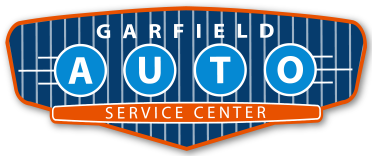Why Used Car Prices Are Going Up (And When They Might Come Down)
For most Americans, used cars have long been an affordable, smart alternative to buying new. Lower cost of ownership, slower rates of depreciation, and significantly lower upfront costs make used car prices attractive, even in today’s environment. Still, used car prices have increased rapidly in 2025, and with lingering supply chain shortages and high tariffs, they aren’t likely to drop anytime soon.
Why Used Car Prices Are Rising
While new and used cars are separate categories within the same market, pricing trends in one category impact prices in the other. Many of the pricing pressures affecting the used car market in Michigan, the US, and globally, stem from three primary sources.
Supply chain issues: The pandemic caused massive shortages of parts, notably semiconductors, metal-stamped parts, and raw materials.
Inflation: Labor shortages, higher wages, and manufacturers prioritizing high-dollar, luxury models all contributed to higher priced new vehicles.
Tariffs: Higher tariffs on steel and aluminum and nearly all important materials contributed to increased manufacturing costs, contributed to the aforementioned elevated inflation issue. While manufacturers like GM tried to absorb those tariffs initially, there is every expectation consumers will see tariffs reflected on sticker prices in 2025 and beyond.
All of these issues ratched up new vehicle prices, which increased demand for more affordable used cars. Increased demand and, since fewer Americans were buying new, static or shrinking supply, has led to a dramatic increase in used car prices. According to Edmunds, the average price of a three-year-old used car is up 40% since 2019.
Used Car Prices Chart, via CarGurus
When Will Used Car Prices Drop?
Due to the outsized impact of tariffs on new and used car prices, used car prices aren’t expected to drop shortly.
When new car production normalizes: improved access to semiconductors and increased new car production will stabilize prices on new vehicles. Over time, this will attract more buyers to the new car market.
When tariff prices normalize: With tariffs expected to increase prices over the next 6-12 months, it could be a few years before consumers are accustomed to higher prices and shop for new cars again. Lower-priced, budget new cars may also take a greater market share over the same timeframe.
When interest rates drop: Elevated borrowing costs have kept many consumers on the sidelines over the past year. Expect lower interest rates to make new car and used car loans more accessible.
Other factors, including the US unemployment rate, housing costs, and broader inflation, will all need to stabilize before middle and high-income households will purchase new vehicles and lower demand for used cars.
How to Negotiate Used Car Prices
If you need a car now, first be sure that replacing your existing vehicle makes more sense than simply repairing it. When it’s time to shop for a used car, follow these tips:
Do your research: Look up the most reliable manufacturers and models, look for specific issues according to model year, and use tools like Carfax or even reviews on Reddit.
Time it right: Shop in October, November, or December, and try to buy near the end of the month. We have more tips on when to buy a used car, too.
Get it inspected: Never skip a pre-purchase inspection, or PPI. We’ll take a look at the used vehicle and give you an honest assessment of its value and what repairs it might need now or in the future.
Don’t rush: It’s okay to walk away. Focus on the out-the-door price of the vehicle and stick to your budget.
Get Expert Automotive Advice and Service at Garfield Auto
Garfield Auto has helped northern Michigan families maintain and enjoy their vehicles for generations. With honest pricing, quality repairs, and exceptional customer service, we’re Traverse City’s favorite auto repair shop. Call (231) 929-3862 or drop us a line to schedule your service appointment with us today!

